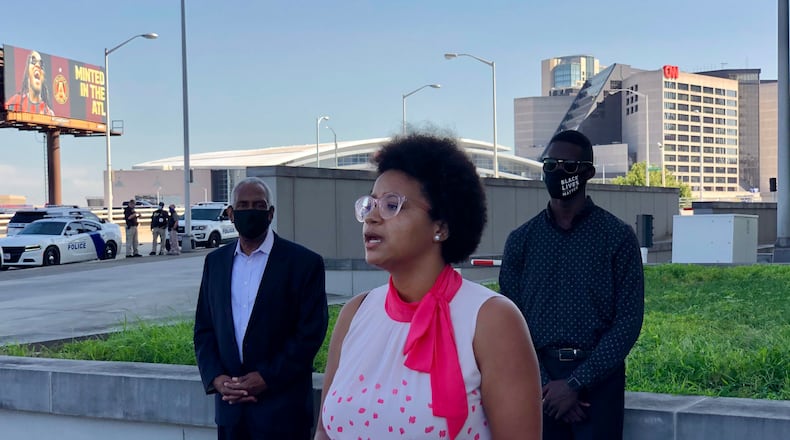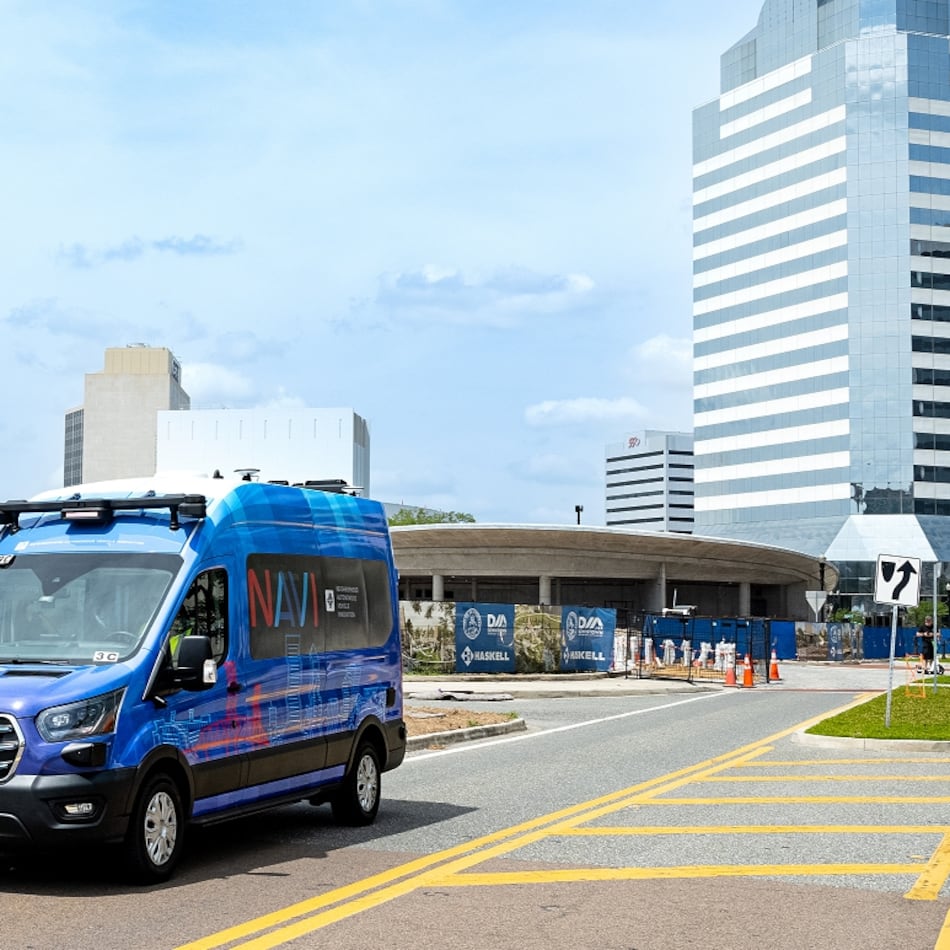Elections finally resume this month for Georgia’s powerful utility commission following three years of canceled races and a court battle over the legality of statewide voting that has elected only one Black candidate to the board.
When early voting begins May 27, voters will at last weigh in on the Public Service Commission, which has broad authority to raise electricity and natural gas rates.
Since the 2022 election was called off, the PSC has approved six rate increases for Georgia Power customers. Three of the board’s five members, all Republicans, have remained in power after their terms expired.
“It’s undemocratic,” said Brionté McCorkle, executive director for Georgia Conservation Voters and a plaintiff in a lawsuit over the PSC’s elections. “Over all these years, the commission has had zero accountability because we haven’t had elections. People deserve representation, especially right now with the high cost of electricity.”
The ongoing court battle over Georgia’s method of electing the Public Service Commission led to elections being canceled. The lawsuit alleges the state’s system of electing all five PSC members statewide — instead of by districts — discriminates against Black voters and violates the Voting Rights Act.
The PSC members must live in one of five geographic districts, but they’re elected by all voters in the state. For example, Commissioner Tricia Pridemore’s western district reaches from the Tennessee border toward central Georgia, but she is elected at-large by voters across the Peach State.
Georgia’s majority-white voting population outnumbers its Black voters, resulting in white dominance of the commission.
Credit: Miguel Martinez
Credit: Miguel Martinez
Eight candidates are running in partisan primaries for two PSC seats that were last elected in 2016 and 2018. Commissioners earn $118,000 annually.
The primaries include incumbent Commissioners Tim Echols and Fitz Johnson, who has never been elected since Gov. Brian Kemp appointed him in 2021. All Georgia voters are eligible to vote in both PSC races.
PSC elections have been on hold since a federal judge appointed by President Donald Trump ruled in 2022 that statewide elections for PSC illegally reduce Black voting strength.
The next year, an appeals court overturned the judge‘s decision, citing the state government’s authority to set the voting method for state offices, regardless of the Voting Rights Act, which prohibits racial discrimination in elections.
Amid the legal fight, the state canceled PSC elections until it passed a law last year extending the six-year terms of existing commissioners and setting a new election schedule. That law is also being challenged in court, and the 11th Circuit Court of Appeals hasn’t yet ruled on the case as voters prepare to head to the polls.
“At a minimum, it’s a mess,” said Bryan Sells, an attorney for the plaintiffs. “Voters haven’t had an ability to express their approval or disapproval with anything the PSC has done over the last roughly five years. It serves the majority party pretty well for now.”
Just two Black commissioners have ever served on the PSC in its 146-year history, including Johnson, who didn’t respond to an email seeking comment.
Credit: Miguel Martinez-Jimenez
Credit: Miguel Martinez-Jimenez
Echols, whose term was originally scheduled to expire three years ago, said Georgia‘s system of electing PSC members statewide by requiring them to live in districts was set up by the General Assembly in 1998 to ensure South Georgia has a representative. The new law extending commissioners’ terms returned the commission to a regular election schedule, he said.
“I was planning to run for reelection regardless of how the rules were set,” said Echols, whose district covers eastern Georgia. “The staggered terms of the PSC are important to maintain institutional knowledge.”
His Republican opponent, Lee Muns, said the PSC should be elected by districts, just like members of Congress, state legislators and county commissioners.
“This structure provides local representation, fostering a strong connection between elected officials and their regional constituencies,” said Muns, the founder of engineering and welding companies.
Credit: arvin.temkar@ajc.com
Credit: arvin.temkar@ajc.com
State Rep. Rob Leverett, who supported the bill that rescheduled PSC elections, said it was important to move forward with races.
“We‘re glad to be back to having elections and hope to get back on a regular schedule,” said Leverett, a Republican from Elberton. “I think that’s good for everybody.”
The four Democrats running for the Atlanta-area seat held by Johnson universally opposed Georgia‘s PSC voting system.
“I do not believe Georgia‘s at-large Public Service Commission elections provide fair representation to voters — especially those in communities most affected by the Commission’s decisions,” said Daniel Blackman, an environmental consultant who narrowly lost a runoff for PSC in January 2021.
The other three Democrats in the race for the Atlanta seat — clean energy advocate Peter Hubbard, former utility executive Robert Jones and former Atlanta City Councilwoman Keisha Sean Waites — expressed similar sentiments.
Another consequence of the delayed PSC elections is that voters will only be able to choose between Republican and Democratic party candidates.
The Libertarian Party lost its ability to put a candidate on the ballot because, under state law, third parties can only nominate candidates for statewide offices if at least one of their candidates received more than 1% of the vote in a previous general election.
Before the pause in voting for the PSC, Libertarian candidates for the board often exceeded 1% of the vote. But in the most recent general election last November, Libertarian presidential candidate Chase Oliver fell short, winning just 0.4% of the vote.
“This indeed means that voters will have fewer choices, not only in PSC elections but all statewide races,” said Elizabeth Melton Gallimore, executive director for the Libertarian Party of Georgia. “We have a team dedicated to regaining ballot access, but it will require extraordinary effort.”
Courts have often invalidated at-large voting systems for many local boards across the country under the Voting Rights Act, said Poy Winichakul, a voting rights attorney for the Southern Poverty Law Center. Even though Georgia’s elections are continuing under this system, she said voters shouldn’t become disillusioned.
“If we know that vote dilution exists, that a system is unfair, that a method of election is undemocratic, it doesn’t mean you stop voting,” Winichakul said. “It means that you vote for officials who will change that and be more accountable to your community.”
How to vote for Georgia Public Service Commission
All registered Georgia voters are eligible to vote for both Public Service Commission races on the ballot. A total of eight candidates — five Democrats and three Republicans — are running for District 2 in eastern Georgia and District 3 in metro Atlanta.
- May 27-June 13: Early voting for Public Service Commission partisan primaries
- June 17: Primary election day
- July 15: Primary runoff election day
- Nov. 4: General election day
About the Author
Keep Reading
The Latest
Featured






